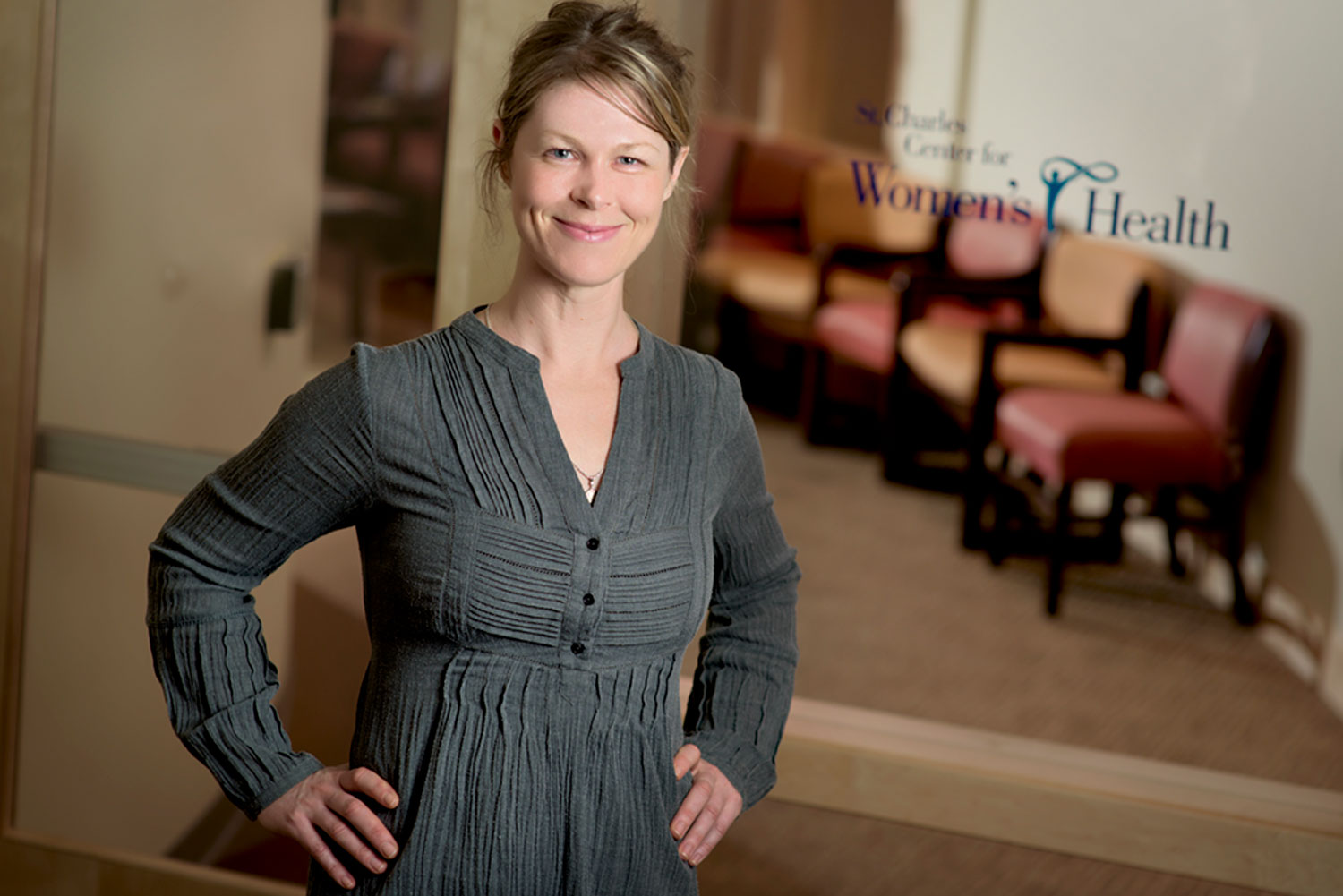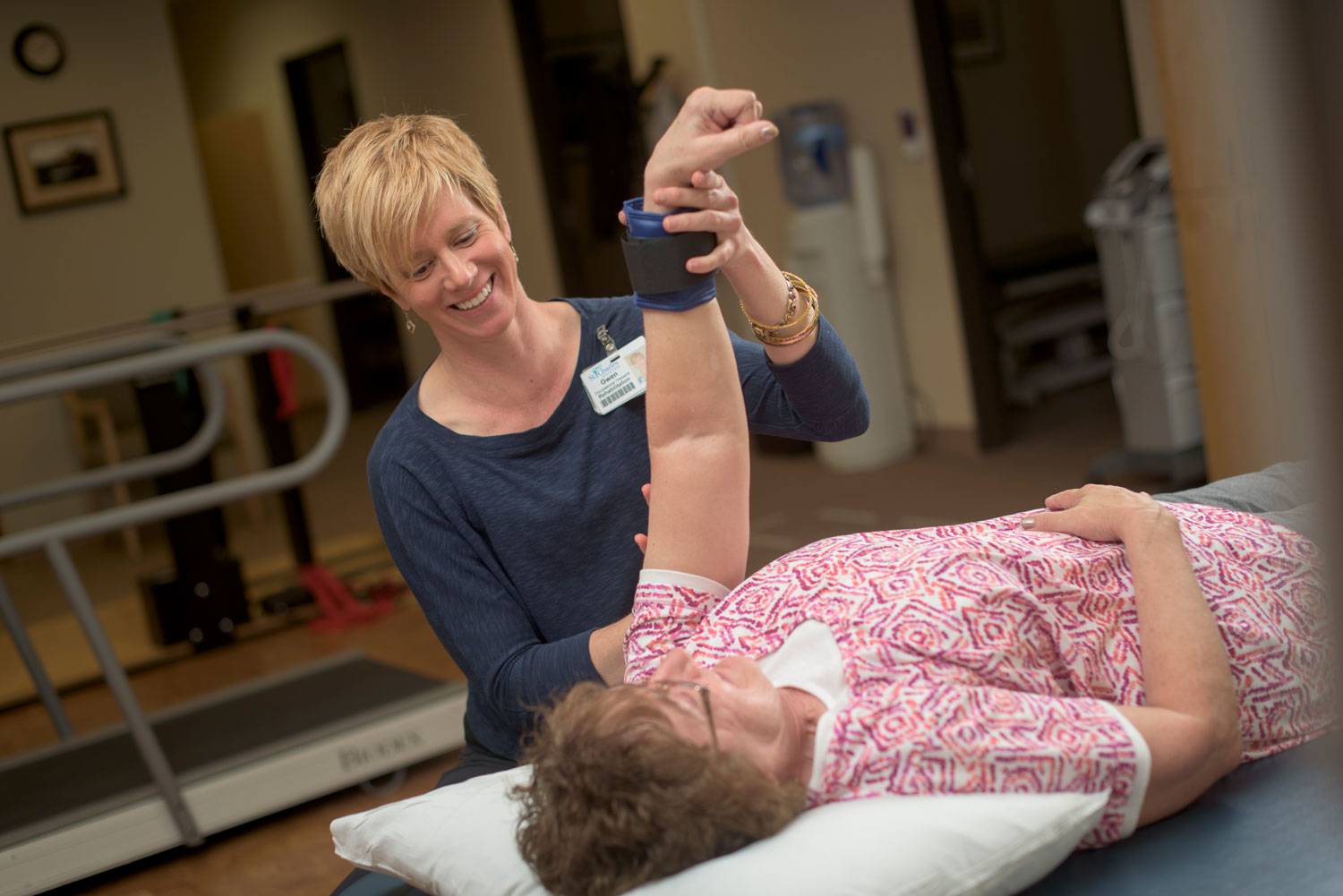Since Dr. Wendy Hatcher started working in the St. Charles Center for Women’s Health office in Bend she’s noticed a trend. Not only are the physicians referring patients to her for behavioral health care – the front desk staff and medical assistants are also identifying patients who may be struggling with life changes or health-related news.
“They’ll notice that an 18-year-old who just found out she’s pregnant is really having a hard time and they tell her, ‘Hey, we’ve got Dr. Hatcher here and she’s great to talk to,’” said Hatcher, a clinical psychologist embedded in the clinic.
“The work is totally amazing. It makes my heart sing.”
St. Charles Medical Group began integrating psychologists into its family care clinics five years ago. Now the model is expanding to include specialty clinics like the Center for Women’s Health. Having psychologists in the same location as physicians gives patients ready access to care for their physical and mental health needs.
“Some issues affect women disproportionately more than men. Depression is one of those things,” said Dr. Kim Swanson, a clinical psychologist embedded in the St. Charles Family Care and the Center for Women’s Health clinics in Redmond. “Depression can affect clinical outcomes for lots of things including surgery. Until now, people weren’t thinking about that as a potential barrier to getting a good outcome from a C-section or hysterectomy.”
Hatcher and Swanson perform pre-surgical evaluations on patients and through a variety of screening tools can better gauge if a woman is prepared emotionally for the procedure she is facing. Sometimes it is as simple as making sure the patient has a clear understanding of what to expect after the surgery that sets her up to recover well.
While post-partum depression is a common diagnosis in the women’s health clinics, Hatcher said she also works with women throughout the lifespan and during every phase of life. For some, times of major transition like menopause can be difficult to navigate emotionally as well as physically. Others may have just received a cancer diagnosis and still others are young, healthy women thinking about having a baby and how that might impact their lives.
“Women take care of everything,” Hatcher said. “In our culture, it’s not OK to be depressed. Very few people can listen and hold the space for women. I feel like the experience here is a village. We are all collaborating to take care of the whole person.”



